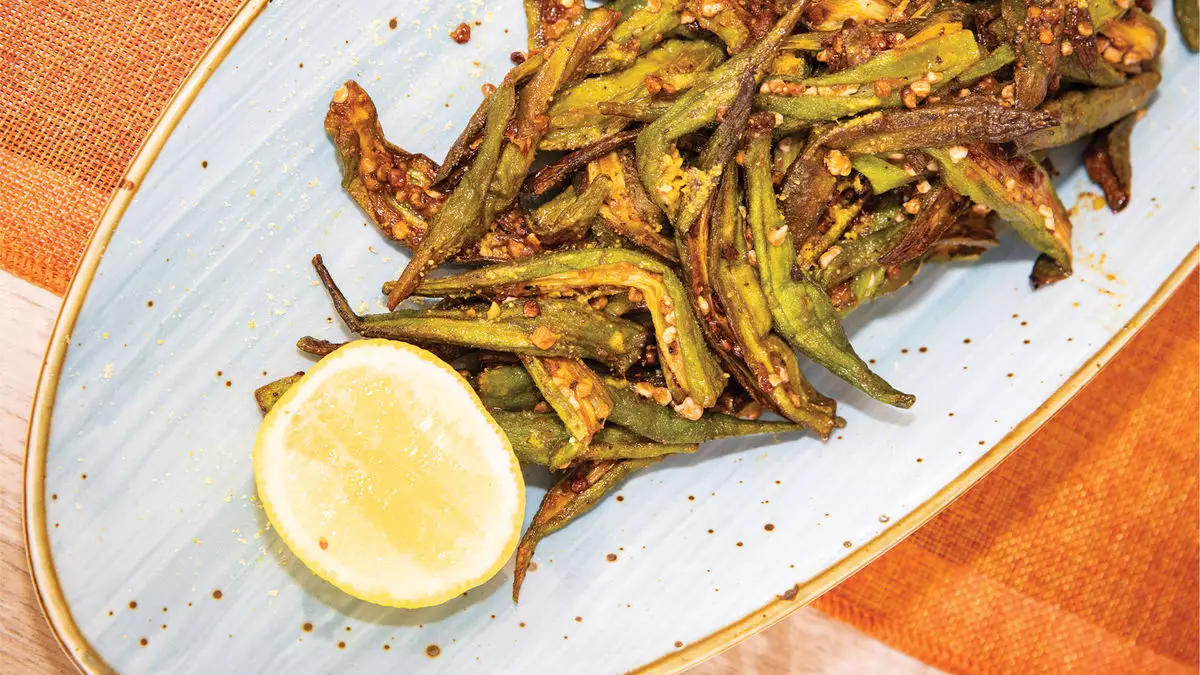Kwame Onwuachi has emerged as a significant figure in the world of gastronomy, particularly noted for his ability to merge diverse cultural influences into his culinary creations. Nearly two years post the inauguration of his restaurant Tatiana at Lincoln Center, it continues to be one of New York City’s most sought-after dining experiences. As part of the Family Reunion food festival, which celebrates Black culture and its invaluable contributions to the culinary landscape, Onwuachi’s distinctive culinary narrative was on full display.
The Family Reunion takes place annually in mid-August at the Salamander Resort & Spa located in Middleburg, Virginia. This luxurious venue, characterized by its sprawling 340 acres of stunning landscape, serves as a picturesque backdrop for a festival dedicated to celebrating the rich heritage of Black culinary traditions. Co-hosted by Sheila Johnson, the co-founder of BET and a prominent figure in the hospitality industry, the event draws attention not only for its impressive lineup of chefs but also for its commitment to honor the Black community’s impact on American cuisine.
Onwuachi, whose achievements include a coveted James Beard Award and acclaim from notable publications, is undoubtedly one of the festival’s major attractions. His reputation is well-deserved, as evidenced by the delectable offerings that patrons eagerly anticipated during this culinary affair.
Upon arriving at the outdoor dining space, one couldn’t help but marvel at the serene surroundings that complemented the vibrant atmosphere of shared dining—a hallmark of the Family Reunion concept. Guests gathered around communal tables, and as dishes were presented family-style, it encouraged an intimate yet lively environment reminiscent of traditional family gatherings.
Onwuachi’s menu for the festival reflected his Afro-Caribbean heritage while integrating experiences from his youth in New York City. One dish that particularly stood out was the shawarma roasted chicken served with turmeric lamb rice. This offering was an intriguing homage to the local halal carts lining New York City’s streets, capturing the essence of urban culinary life. The chicken was succulent and flavorful, perched on a fragrant base of yellow rice, enhanced further by tender pieces of lamb, complemented by classic condiments of white sauce and hot sauce—a perfect representation of the flavors that characterize Onwuachi’s cooking style.
Diverse Dishes that Celebrate Heritage
Other notable highlights included the brown stew of branzino, which featured rice and peas garnished with fresh cilantro and onion. This dish showcased a comforting combination of flavors and textures that appealed to both the eye and the palate. Additionally, the piri piri salad, adorned with cucumber and avocado, and dressed in a zesty gooseberry sauce, brought a refreshing element to the meal.
Perhaps the most surprising dish was the crispy okra, which Onwuachi transformed into a delicacy. Usually overlooked on vegetable lists, this version was perfectly fried and drizzled with a bright sweet and tangy honey mustard blend, culminating in a delightful burst of flavor that left a lasting impression on many guests. Each dish encapsulated not only culinary technique but also a narrative steeped in culture and personal history.
A Glimpse into Onwuachi’s Future Ventures
The anticipation around Onwuachi’s forthcoming restaurant, Dogon, added an electrifying buzz to the festival. Set to open in Washington, D.C., Dogon aims to solidify Onwuachi’s influence in the culinary scene further. During Family Reunion, attendees were offered a sneak peek of the dishes destined for this highly anticipated venue, including an exquisitely prepared curried branzino alongside a mushroom etouffee that spoke volumes of his penchant for bold flavors.
Among the standouts was a reimagined potato salad aptly named Not Potato Salad. This innovative dish elevated a picnic classic through the introduction of smoked oyster remoulade, pickled celery, and topped with delicate slices of soft-boiled egg, showcasing Onwuachi’s skill at transformation—turning comfort food into gourmet offerings.
As the plates were cleared and laughter filled the air, it was evident that Kwame Onwuachi and the Family Reunion festival have not only solidified their place within the culinary dialogue but are indeed paving the way for future conversations. The event served as a reminder of the richness of Black contributions to America’s culinary story and the importance of community and togetherness in food. Through his creative lens, Onwuachi continues to inspire both chefs and diners alike, ensuring that the flavors of his culture are celebrated and cherished.


Leave a Reply